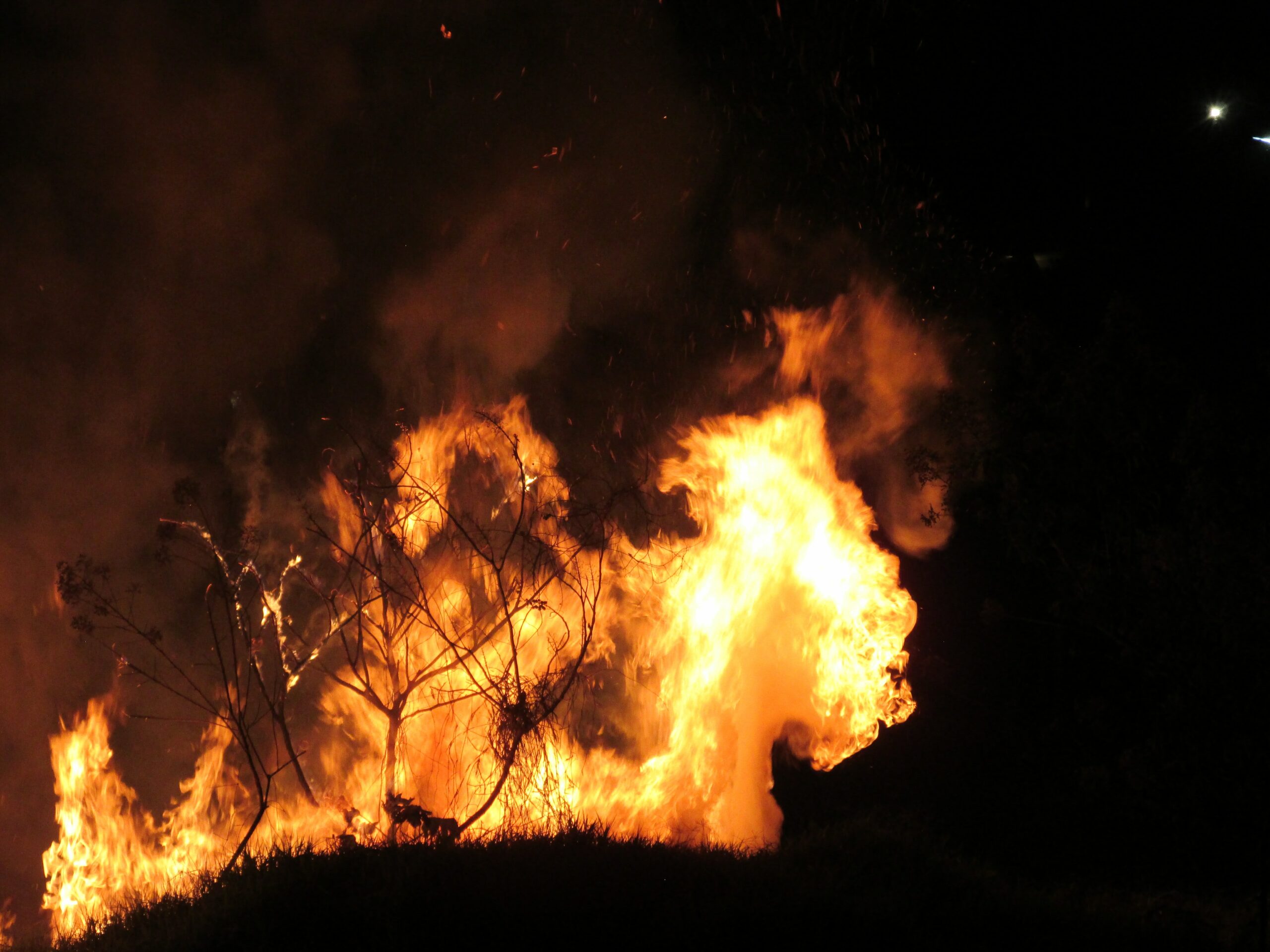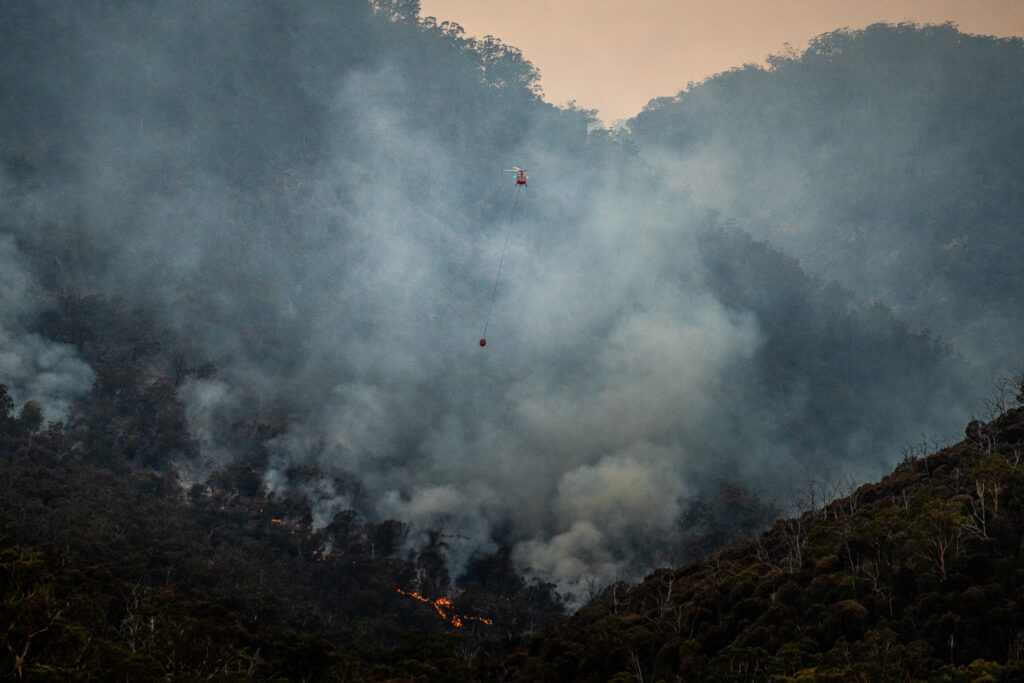The Complex Web of Forest Fire Causes: Natural, Human, and Climate Factors
Debunking the Misinformation on Forest Fires: Separating Renewable Energy from the Equation.
Debunking the Misinformation on Forest Fires: Separating Renewable Energy from the Equation.

The internet has recently been abuzz with discussions about the causes of wildfires, particularly in Spanish-speaking communities. One prevailing false narrative suggests that renewable energy sources like wind and solar power are responsible for sparking devastating forest fires. In this article, we delve into a comprehensive report titled “Rumores Renovables: Analyzing the Online Ecosystem of Spanish-Speaking Communities Opposed to Renewable Energy Initiatives” to separate fact from fiction and provide a clear understanding of what truly contributes to wildfires. Spoiler alert: it’s not renewable energy.
Exploring the Landscape of Misinformation
The report delves deep into the world of climate misinformation within Spanish-speaking communities. It investigates how online platforms are inundated with false and misleading information, particularly regarding renewable energy sources. The research seeks to dissect the online dynamics, influencers, and tactics used to disseminate anti-renewable narratives.
The Anti-Renewable Conversation
So, what does the anti-renewable conversation look like in Spanish-speaking spaces? The report uncovers a network of narratives driven by right-leaning accounts from Spain, Latin America, and other similar communities. While these accounts primarily focus on advancing right-wing ideologies, they occasionally venture into spreading false information about renewable energies. The report emphasises that the volume of content produced by these communities often correlates with extreme weather events or environmental policy updates related to renewables.
Key Findings
Let’s break down the essential findings from the report:
International Network: The Spanish anti-renewables network comprises ideologically aligned but distinct geographical communities across Latin America and Spain. One prevalent cluster, accounting for 34% of accounts, is rooted in Spain and displays explicit signs of right-wing ideology. However, this cluster doesn’t exclusively focus on environmental topics but encompasses a range of issues, some of which involve criticising renewable energies.
Narratives and Engagement: Within the network, anti-renewable narratives, including claims that forest fires are intentionally set to clear land for renewable projects, dominate the conversation. While these narratives make up less than half of the posts, they attract a staggering 66% of total engagement. Some other common narratives revolve around the harm to animals, pollution, unreliability, and the idea that renewables solely benefit the wealthy.
Online Dynamics: The report delves into the online dynamics that drive the spread of anti-renewable narratives. It highlights how content opposing renewable energies transcends geographies and ideologies. Content is often shared across multiple social media platforms to maximise its reach.

Créditos: Matt Palmer – Unsplash
Debunking the Misinformation
Let’s address the core issue at hand: do renewables cause forest fires? The report emphasises that these claims are part of a broader narrative that extends across various conspiracy theories. They lack substantial evidence and rely on repackaging and translating content from English-language sources. Furthermore, the narrative about intentional destruction of the environment, particularly through forest fires, is not exclusive to Spanish-speaking communities and has circulated in other languages as well.
The Climate Change Link
Wildfires are complicated events influenced by many factors, such as the weather, human actions, and natural occurrences like lightning. According to research, climate change is making weather patterns shift, causing more frequent and more intense wildfires. It’s also making the forests drier and droughts more common, making it easier for fires to start. It’s a cycle: the more greenhouse gases we release, the drier the forests get, leading to longer fire seasons and bigger wildfires. This, in turn, makes climate change worse by sending more carbon into the air.
In Summary:
While online narratives may perpetuate the misleading idea that renewables are linked to forest fires, it’s essential to critically examine the sources and evidence behind such claims. Misinformation can spread rapidly, but with informed discussions and a focus on credible sources, we can separate fact from fiction and make more informed decisions. Blaming renewables distracts from addressing the real causes of these destructive fires.
In summary, wildfires are influenced by a multitude of complex interacting factors, and climate change is becoming an increasing player. Understanding this connection is crucial for addressing the challenges of a warming world.
Otras publicaciones recientes
Tratado Mundial de Plásticos: en qué consiste y por qué es importante que se apruebe
En los últimos años, la problemática de la contaminación por plásticos se ha intensificado. El impacto del Tratado Mundial de Plásticos.
Descubren una innovadora forma natural de proteger los cultivos en la Caatinga brasileña
Un grupo de investigadores está desarrollando un recubrimiento comestible a base de mucílago de palma para proteger los cultivos en la Caatinga brasileña.





